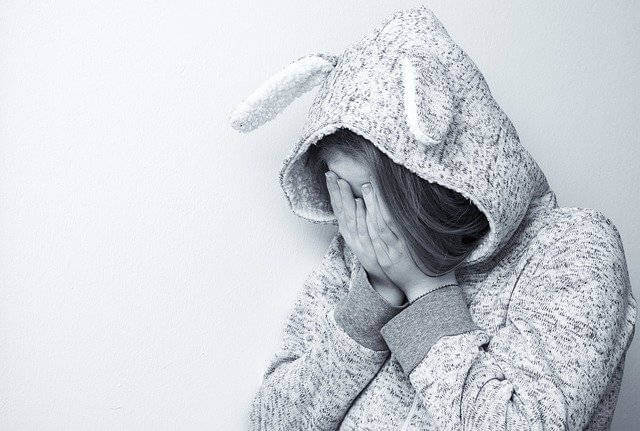It’s normal to feel anxiety from time to time. In reality, everyone in the world feels it. That does not mean you have Anxiety Disorder. Only when your anxiety is constant, over a long period, and an impediment to your daily activities, we call it Anxiety Disorder.
Ironically, most anxieties are good. A survey suggests that a little anxiety about a task or a test helps students study harder. The same goes at work. Slight anxiety improves performance rather than a fully relaxed environment. So one might ask:
What is Anxiety Disorder?
Anxiety Disorder is a physical rather than a mental phenomenon. Although it starts in the mind, it eventually affects the body. As mentioned earlier, a little anxiety improves performance. That’s because when anxious, our body releases adrenaline.
However, adrenaline is designed to give us a short burst of energy. If a large amount of adrenaline is released over a long period and happens repeatedly, it can’t be good. And that is what anxiety disorder really is.
A steady stream of adrenaline can cause panic, muscle spasms, uncontrollable behavior, and even death in some cases. Untreated, people suffering from anxiety disorder may commit suicide.
In our series of articles on Anxiety Disorder, we will discuss all the types, their causes, symptoms, and treatment.
What are the Types of Anxiety Disorder?
There are many types. According to the American Psychiatric Association, there are about 135 types of mental disorders, but anxiety disorder has 6 major types:
- General Anxiety Disorder (GAD):A person suffering from GAD is worried about almost everything- past, future, environment, children, society, politics, country you name it. A GAD patient complains about almost anything and they have very little appreciation for the good things in life.
- Social Anxiety Disorder (SAD):Like the name, SAD patients are extremely worried about their social appearance and what other people think about them. They are obsessive about how they look and talk and they don’t want to meet other people anymore. They isolate themselves and become loners.
- Obsessive Compulsive Disorder (OCT): People suffering from OCD can be annoying to others because of their obsession. For example, if a family member is obsessive about cleanliness, he/she might drive all the other family members crazy. They will make the children wash their hands again and again and get furious if they drop food on the floor or the carpet.
- Post-Traumatic Stress Disorder (PTSD): PSTD occurs after a violent incident or accident. However, remember everyone should feel bad, sad, or upset after a violent incident. It’s not PTSD yet. People should be allowed to grieve for a sufficient amount of time so that they can move on. To qualify for PTSD, the patient must demonstrate the same amount of grief after 6-8 months of the incident. They also demonstrate signs of reliving the incident.
- Phobias:Everyone is afraid of something- height, insects, confined space, ETC. That does not mean that you have a phobia. Phobia is when you see a spider and freeze up or have severe muscle spasms. Again, it’s all about the amount of adrenaline flow.
- Panic Attacks:Many psychiatrists argue that panic attack is not an Anxiety disorder on its own. It is a derivation of other anxiety disorders such as GAD, SAD, or PTSD. However, a panic attack is a severe physical phenomenon. It causes heart problems, and respiratory problems and even weaken our immune system.
What Causes Anxiety Disorder?
It is a good question, but the answer is very elaborate. Different disorders are caused by different things so we cannot discuss them all here. We have to go to the types (GAD, SAD, PTSD) one by one and discuss their causes individually so look forward to that.
How to Treat Anxiety Disorder?
Again, it depends on the disorders and their causes. However, a general medical treatment for all sorts of Anxiety Disorder is Valium (Diazepam). You must be cautious when taking Valium because it may be addictive.
You should also consult a doctor to determine the dosage and to get a prescription. However, although we don’t recommend it, many choose to self-medicate due to the bureaucracies and rising cost of medical insurance.
If that is your case, you must buy Valium online without a prescription. It is a risky business, but the internet allows us to do so. Therefore, you must first a reliable pharmacy that has cheap Valium for sale. We can recommend where. Just click on the link.
The Takeaways
So, there you have it. Normal anxiety is good, but Anxiety Disorder is a sickness and requires medical attention. We must first determine the type and causes, and then find a treatment plan.
Contact the mental health professional near you if you suspect that you or a family member is suffering from any of the Anxiety Disorders mentioned above.
Share this:
- Click to share on Twitter (Opens in new window)
- Click to share on Facebook (Opens in new window)
- Click to share on LinkedIn (Opens in new window)
- Click to share on Reddit (Opens in new window)
- Click to share on Tumblr (Opens in new window)
- Click to share on Pinterest (Opens in new window)
- Click to share on WhatsApp (Opens in new window)


